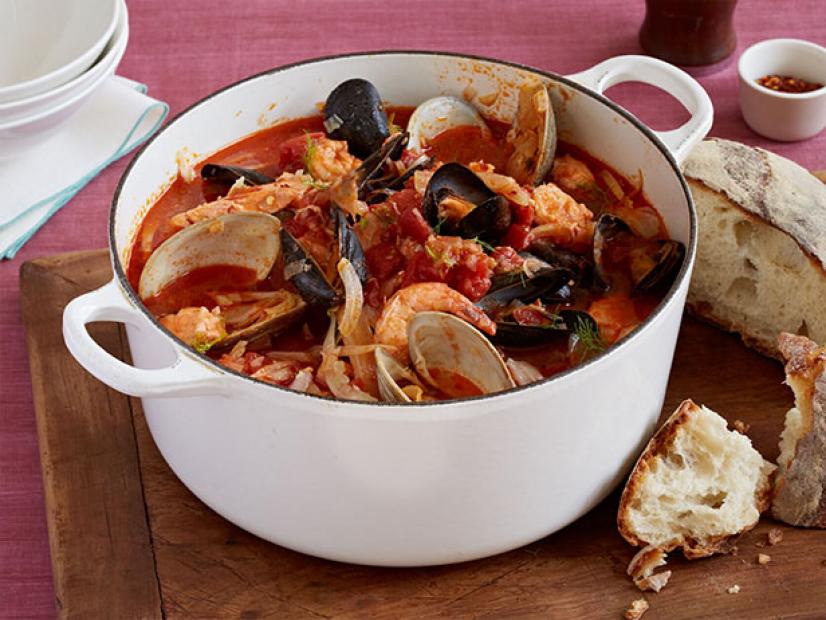Quote:
Originally Posted by Crawford

Right, I'm not saying there was no Italian-American food. It just wasn't ubiquitous until the 1960's or so. Prior to that it was kinda "exotic" ethnic food. And people didn't eat out much until a few generations ago anyways.
And NY style slice shops didn't proliferate until well after WW2. There were many NY pizzerias, of course, there are a few coal oven places dating to the turn of the century, but the typical foldable slice joint isn't more than 60 years old or so.
|
An "iconic" San Francisco dish, which has been around since well before 1900 and eaten by people of many ethnicities, is cioppino, a dish very much like bouillabaise but brought to the city by Italian immigrants who were mostly from Genoa and many of whom came at the time of the Gold Rush. It was widely enough enjoyed that a recipe for it appeared in The Refugee's Cookbook, a fundraising effort to benefit San Franciscans displaced by the 1906 earthquake and fire.
You are confusing what you call "slice shops" for pizza, which were indeed largely a post-WW II phenomenon brought home by troops who served in and around Naples during the war, with Italian peasant/family food which has been served for generations by immigrant families in the US and by restaurants catering to them in their neighborhoods.
One kind of evidence that Italian restaurants aren't just a post-war thing is the differences between East Coast and West Coast Italian restaurant food. Northern Italian food and Italian seafood (from the region around Genoa) is much more common relative to the better known "red sauce" fare in SF and that's because what the local Italians, who did not come from southern Italy and Sicily like so many of those back east, wanted. One unfortunate result of this, though, is that, as someone who grew up back East, I've always found SF pizza kind of inferior.
Cioppino
 https://www.foodnetwork.com/recipes/...recipe-1916710
https://www.foodnetwork.com/recipes/...recipe-1916710



